Commodity Futures: Should you trade this derivative?
Table of Contents
Commodities are the raw materials that are used to produce finished goods. Mineral ores, livestock, fuel, and agricultural products are some of the commodities that power the economy. These commodities are bought and sold in various quantities every day and at different prices. Their ever-varying price gives traders several unique profit opportunities daily.
When done right, commodity trading can generate solid returns and protect your capital by diversifying your portfolio. But besides having specialized knowledge about trading, you must also be willing to risk a lot of capital to make a substantial profit. Trading commodity futures is certainly not for everybody.
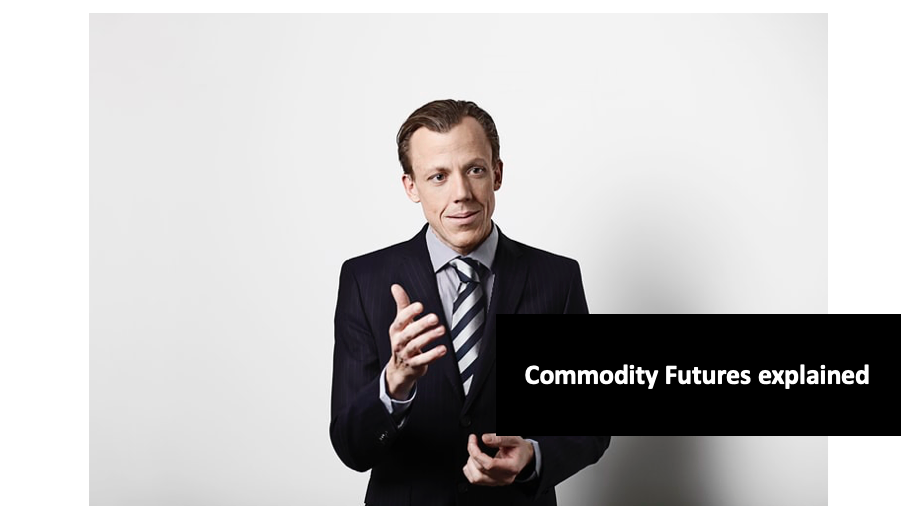
In this post, we outline how you can trade commodity futures and also discuss if it’s the right derivative to trade for you.
What are Commodity Futures?
Commodity futures are contracts that bind two parties to transact – buy or sell – a stipulated amount of a commodity for a specific price on an agreed-upon date. While commodity futures are primarily used to protect an investment position, these contracts can also be used for speculation.
It is easy to confuse commodity futures contracts with options contracts. One of the easiest ways to remember the difference between the two is that with options, you have the option – not an obligation – to act on the contract. On the other hand, a trader holding a futures contract is obligated to transact with the other party. If you don’t want to act on a futures contract, you can enter into an opposite position to remove the contract from your trading account.
Types of commodities
There are three main types of commodities that you can trade with commodity futures:
- Food
- Metals
- And energy.
Wheat, meat, sugar, and coffee are some of the most popular food commodities. Gold, silver, and copper are the most traded metal commodities, and oil and gasoline are the go-to energy commodities to trade.
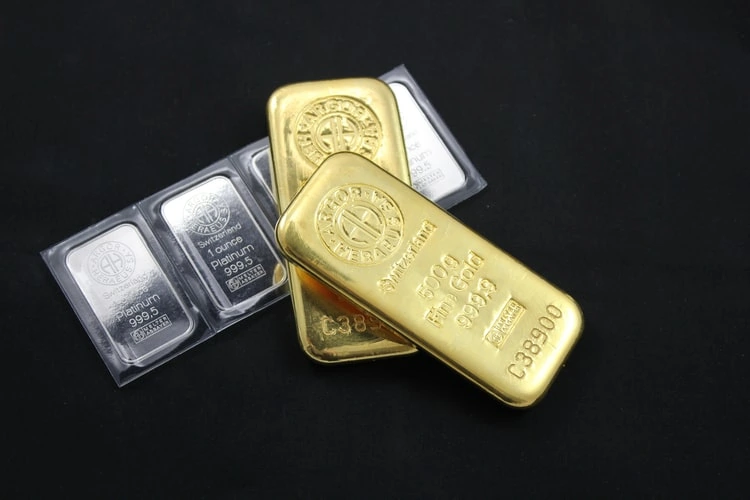
How commodity Futures work
If you buy a futures contract, you fix the future price of the commodity you’re buying, protecting yourself from spending more in the event of a price hike. Furthermore, if the price does rise, you will receive the commodity at a lower price than the market price. You can then sell the commodity at market price and pocket the difference between your lower buying and higher selling price.
- If you sell (or short) a futures contract, you essentially receive a guarantee that you will receive the stipulated amount of a commodity, regardless of its price at the time of execution.
- If the price falls, you can buy the commodity at the lower current market price and sell it to a futures buyer to make money.
Note:
A commodity futures contract is typically settled with cash. However, traders can choose to receive physical delivery of the goods.
History of Commodity Futures
Commodity futures contracts are some of the first formal trading instruments that traders had access to. The earliest recognized futures trading exchange was Japan’s Dojima Rice Exchange, established in 1730. It facilitated rice trading using futures contracts. The concept of futures trading was introduced to the west in the 16th century. England was the first western state to adopt commodity trading on a large scale. Later in 1877, the London Metals and Market Exchange was established to formalize trading practices.

However, the Chicago Board of Trade was the first official commodity exchange established in the west. It was founded in 1848, almost three decades before its English counterpart. The establishment of the CBOT marked the initiation of Chicago as one of the major agricultural hubs of the United States. Chicago was connected to cities around the country via railroad and telegraph lines, facilitating faster and more convenient interaction between buyers and sellers.
The CBOT only allowed trading of corn futures initially. Trade of wheat and soybean futures was allowed shortly after, and the exchange added more and more commodities to its repertoire over time. The exchange announced a merger with the Chicago Mercantile Exchange in 2007 and now facilitates the trading of a lot more than just commodities.
That said, corn, wheat, and soybean futures contracts still account for the bulk of the commodities trading that the CME facilitates. There are several exchanges worldwide that facilitate commodity trading, but U.S. exchanges are traded on most widely.
How Commodity Futures influence the price of goods
Commodity futures contracts influence the underlying commodity price primarily because they are traded on an open market. It is for this reason that traders can predict the future value of a commodity more precisely. Both technical analysis and fundamental analysis can be equally effective in helping a trader determine the direction of price movement.
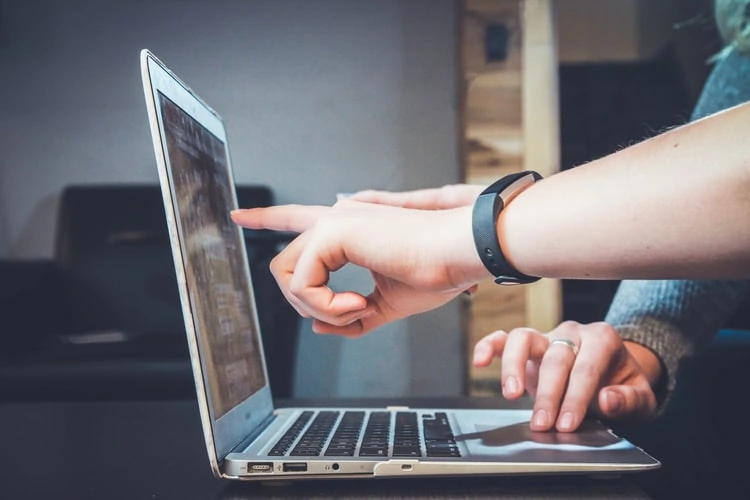
For instance, if a trader learns from the news that a country is threatening to close its borders with another country, they will know for sure that the commodity prices will fluctuate. The price of a commodity futures contract is an accurate indicator of market climate. If a crisis occurs and traders anticipate a shortage, you will observe speculators bidding up prices of commodities.
When other traders notice the surge in commodity prices, they respond by starting a bidding war, driving the commodity price even higher. The climate of the market never goes against the basic rules of supply and demand. When the crisis comes to an end, the prices stabilize. It is also vital for you to note that commodities of all types have an inverse relationship with currency values. If the price of the U.S. dollar rises, the commodity price will fall, since traders will be able to buy more commodities with the same amount of money.
Note:
The prices of commodities change every day, and so do the prices of the commodity futures contracts. The trade of commodity futures contracts is why the price of fuel, food, and metal changes constantly.
How to trade Commodity Futures
Trading commodity futures is easy – all you have to do is create an account with a brokerage firm that connects you to the many commodity exchanges worldwide. After you sign up, you will be able to buy and sell commodity futures contracts without any hassle. But you must note that you will owe the brokerage a fee every time you transact.
While trading commodity futures seems easy, making money trading commodity futures is complicated and highly risky. The prices of commodities are highly volatile, and if you’re new to trading, trading commodity futures isn’t the right place to start. If you don’t know what you’re doing, you may end up losing a lot more than what you invested initially. Now that you’re acquainted with the risks, if you’re sure that you can manage risks effectively, you can use commodity futures for two purposes: speculating and hedging.
Speculating
Traders can bet on the direction of a commodity’s price using commodity futures contracts. The contracts give traders the flexibility of ordering a position in either direction. If you think the price will rise, you can go long (buy) and sell the contract later to make money. You can also go short, selling the commodity at a high price initially to repurchase it at a lower price when the price falls.

What you need to remember is that commodity futures contracts involve a high degree of leverage. You don’t need to invest the full amount of the contract upfront, and usually only need to pay under 10% of the total value. The percentage you must pay varies from commodity to commodity and broker to broker. Let’s say you buy a contract for 5,000 bushels of wheat for $5000 when wheat is trading for $12 per bushel. If the price of wheat rises to $15 per bushel, you will stand to gain the difference between the increased price ($75,000) and the initial contract amount ($60,000).
The hypothetical $15,000 profit figure does not account for brokerage fees. However, if the trade doesn’t go your way, you will lose a lot more than your initial investment. If the price drops to $11 per bushel, you will need to pay $5,000 to the brokerage besides your initial margin. A movement in price as small as a dollar can make a big difference to your trade. The price dropping from $12 to $11 led to a $5,000 loss in the example above.
Risk warning:
Risks involved with speculating
Unlike options trading, trading commodity futures makes buying or selling the underlying commodity a requirement. If you fail to close your position before expiry, you will need to take the delivery of a large number of commodities. The high amount of leverage involved makes speculating commodity futures an extremely risky undertaking. While you have the opportunity to make an exponential profit with commodity futures, you may lose money to the point you go into debt.
Furthermore, the Mark to Market rule implicates that futures trading accounts need to be balanced every day. If your position makes a profit, the amount will be credited to your account. However, the position loses money, a margin call is generated, and you will need to wire the required funds into your account. If you fail to oblige, your position will be liquidated.
One more downside of speculating with commodity futures is that the brokerage will run a background check, and you will be allowed to trade only after explicit approval.

Hedging
Hedging is a technique that individuals and business owners use to protect themselves from losses. Let’s say a farmer is aiming to sell 5,000 bushels of wheat in three months. However, the farmer is expecting the price of wheat to fall. In this case, the farmer could get a futures contract with a dealer, fixing the wheat’s sale price.
Such a contract would protect the farmer from potential loss.
Risks involved with hedging
The most significant disadvantage of hedging with commodities is that engaging in a futures contract can lead you to miss out on favorable price movements. For instance, if the price of the wheat were to rise in the example above, the farmer would not be able to take advantage of the increased prices since the contract locks in the selling price.
Over-hedging can also lead to losses. Let’s assume a company over-estimates its needs for a commodity and engages in a futures contract. If the commodity’s price falls, the company will need to let go of the futures contract at a lower price when selling it back.
Commodity Futures regulation
Like most other derivates, trading commodity futures is also regulated by a centralized authority. In the United States, The Commodity Futures Trading Commission (CFTC) governs the trade of commodity futures contracts.

The CFTC is a federally-mandated regulatory authority that overlooks trading in both futures and options markets in the country. The agency was established after the passing of the Commodity Futures Trading Commission Act of 1974. The institution ensures that futures markets remain competitive and efficient, and more importantly, warrants the safety of traders. It protects speculators against fraud, manipulation and keeps the markets clear of abusive trading practices.
Why trade Commodity Futures?
Futures are high-risk derivatives and are not meant for novice beginners. However, trading commodity futures offers some advantages that other financial instruments don’t provide. Some of the benefits include:
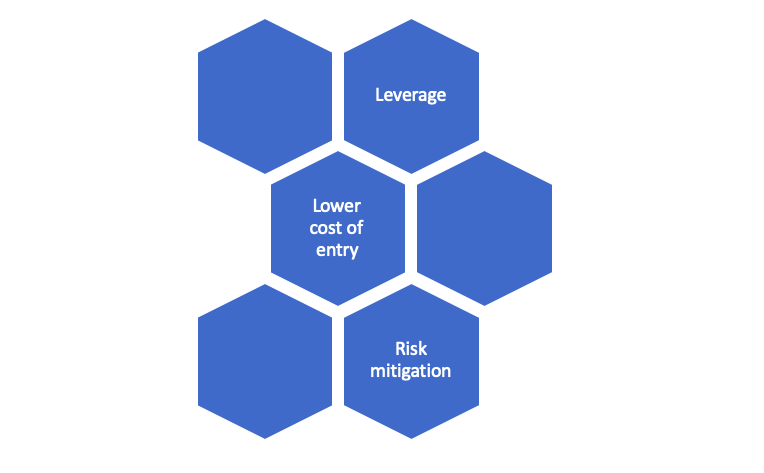
- Reliable volume data: Unlike trading in the forex market, where finding reliable volume data can be a challenge in and of itself, futures markets give you access to accurate volume data. With reliable data handy, studying the market is a lot easier, and you will be able to tell which players are interested in trading and which are not. There is no ambiguity to deal with.
- Leverage: Stock trading requires you to pay the total price of the stock you want to buy. However, you don’t have to pay the contract’s full price upfront with commodity trading. You only need to pay a fraction of the cost of the commodity – the margin – upfront. You control a much larger sum of money by paying this good-faith investment amount. While this leverage can amplify your profits, it can also cause devastating losses.
- Risk mitigation: If a farmer expects the price of the crop they’re growing to fall, they can get their hands on a commodity futures contract. The contract will fix the price at which the farmer will sell the crop, protecting them from an unfavorable price movement. Farmers can get futures contracts for virtually any crop they grow, which is another benefit of the modern futures market.
- Prices depend on the underlying commodity: One of the biggest differences between futures and options is that the price of the futures contract changes in tandem with the price of the underlying commodity. The price of options contracts may not change even if the price of the underlying asset changes. This makes technical analysis techniques a lot more effective in futures markets compared to options markets.
- No short-selling restrictions: In futures markets, there are no restrictions on what type of position you can get. Unlike the stock market, you can get a long or short position at any time. You don’t have to be wary of any restrictions and can treat long and short positions impartially. This enables you to follow your instincts post market analysis without worrying about regulations.
- Lower cost of entry: As mentioned earlier, you only need to pay a margin to get your hands on a commodity futures contract. On the other hand, to get involved with stock trading in the same capacity, you will need a lot more capital. Margins vary from 3% to 9%, depending on the brokerage you’re working with and the commodity you’re trading.
Disadvantages of trading Commodity Futures
Trading commodity futures isn’t without its drawbacks. Some of the major disadvantages you need to know about are:
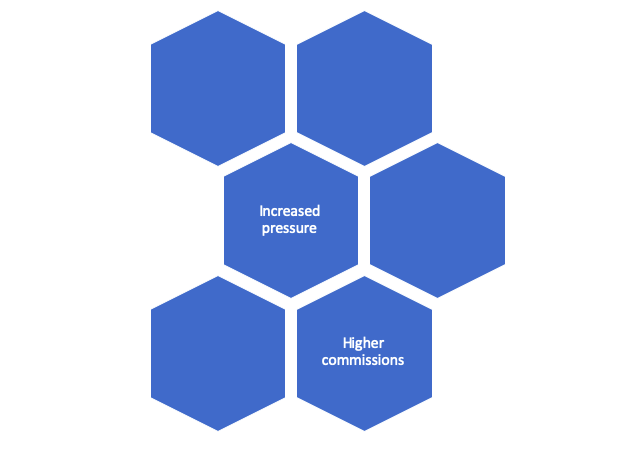
- Increased pressure: Investing in commodity futures doesn’t require much capital but gives you a shot at making huge profits. This leads to traders getting greedy and betting all of their capital on one commodity, adopting the “I can’t afford to lose” mindset. The stress from the mindset can lead the trader to make some simple yet expensive mistakes.
- Higher commissions: If you’re the kind of trader that makes many marginal trades, you may want to avoid participating in commodity futures trading. The higher commissions can add up to large amounts quickly. Even if you end up making money at the end of the day, there is a chance that you will spend a lot of your profits on commissions. Before you start trading commodity futures, make sure you have a solid money management strategy in place.
Commodity trading vs. stock trading
Margin and leverage
Trading commodity futures contracts involves leverage a lot more than trading stocks do. Let’s say you have $10,000 in your trading account. Instead of spending it on buying oil and gas stocks, you could spend it on a commodity futures contract. Assuming that you need to pay a 10% margin, the same $10,000 could give you control over $100,000 worth of oil.
Keep in mind that you will need to maintain a minimum balance in your trading account on top of paying the margin. If the trade goes your way, money will be added to your trading account. If your position works against you, the loss will be debited from your account at the end of the trading day. If your account is empty and the brokerage requires more funds to balance the account, a margin call will be generated. You can pay the amount to keep your position, and if you don’t oblige, your position may be liquidated.
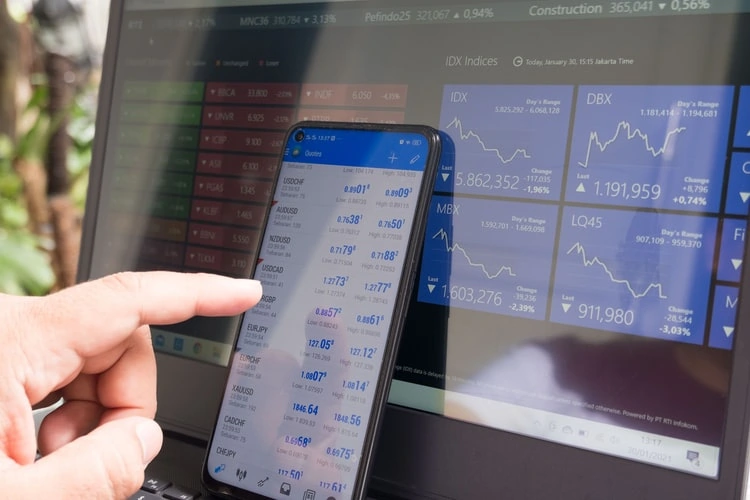
The term “margin” has an entirely different meaning in stock markets. Margin is the loan given to a trader by a broker, so they can trade. Trading on margin in a stock market will not bring as big a profit as trading commodity futures will. The leverage involved in commodity futures trading can exponentially boost profits, but it also increases the potential loss.
Trade timeline:
Buying stocks and holding them for a long time is very common in the stock market. In contrast, commodity futures trades are typically short-term trades. While stock markets are open at set times and do not function on weekends and holidays, you can trade commodity futures at any time since they are open 24/7. Overall, though, commodity trading is riskier but can lead to much larger gains than stock trading.
Conclusion: Is trading Commodity Futures right for you?
Investing in commodity futures is best for seasoned traders with sophisticated strategies and a solid money management system. While the prospect of making huge profits may seem attractive to new traders, one needs experience in the market to navigate commodity futures trades. Traders also need to study commodity price charts and carry out other types of research before putting their money in a contract. A high-risk tolerance is a must since traders need to stomach losses in the short term to win big in the long run.
A trader must only invest in commodity futures if the contract takes up a portion of their portfolio. Putting all your money into trading commodities can be financially devastating. If you decide to invest in commodity futures, we advise you to ensure that the contracts take up not more than 20% of your portfolio. This will ensure an optimal risk/reward ratio. However, not all traders are the same, and speaking to your financial advisor before making any significant investments is the right way to go. You must do your due diligence and get a professional’s opinion before deciding to invest in commodity futures contracts.
If you find trading commodity futures too risky but still want a piece of the action, you could consider investing in commodity funds. These are primarily of two types – exchange-traded and mutual funds – and are an excellent way of diversifying your portfolio and growing your money using commodity futures.
FAQ – The most asked questions about Commodity Futures :
What are commodity futures?
Commodities are assets that reflect fungible items like oil, iron ore, or wheat. Futures contracts are commonly used for trading commodities. Futures are kinds of financial derivatives or contracts in which you deal with your sellers or purchasers to buy or sell specific assets at a specified price at a future date.
Is a commodity future an example of a derivative?
Yes, Commodity futures are a type of derivative contract. In these contracts, the buyer and the seller come to a specific amount of buying or selling a particular quantity of a physical commodity on a date fixed by them beforehand. Assets classified as derivatives are those whose value depends on the cost of underlying securities.
What connection exists between commodities and futures?
Certain financial derivatives, known as futures, involve agreeing to purchase or sell specific assets at a specific price at a specific point in the future. A class of assets known as commodities represents tradable products like grain, mineral ores, and oil. Futures are typically used for trading commodities.
Is it possible to lose money on commodity futures?
Yes, there always lies a risk factor about investing in futures. You can lose money if the market falls dramatically. According to the CFTC, futures are volatile and complex and are not recommended for any crypto traders.
See our similar articles about futures trading:
Last Updated on May 24, 2023 by Andre Witzel

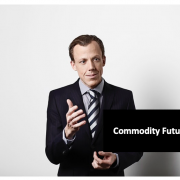 unsplash.com/wnbrg
unsplash.com/wnbrg